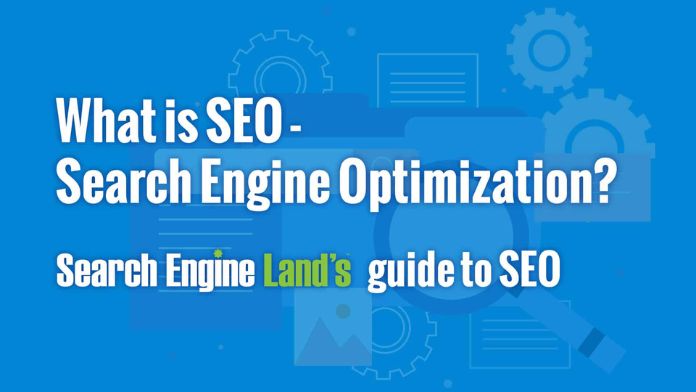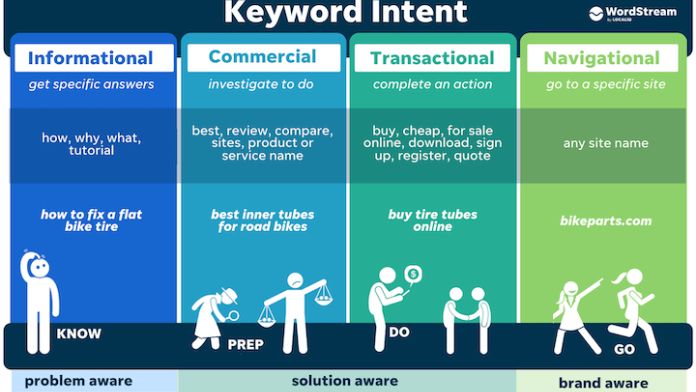What is SEO?
SEO from "Search Engine Optimization" is the term for search engine optimization. This is a process designed to improve the technical configuration of the site and increase its relevance to the content. Improve searchability. Search engines need to focus on optimizing websites that respond to their users' search results.
Why ranking is overrated
The ranking is often considered the ultimate goal of SEO, but in reality, it can be overrated. While achieving a high ranking for your website on search engine results pages (SERPs) can certainly help drive traffic and boost visibility, it doesn't necessarily guarantee success. Many factors beyond ranking can impact the success of your website, including user experience, conversion rate, and overall business strategy. Instead of obsessing over ranking, it's essential to focus on creating high-quality, engaging content, building a strong online presence, and developing a comprehensive SEO strategy that aligns with your business goals. Ultimately, SEO success is about more than just ranking – creating a positive user experience and building a strong, sustainable online presence.
SEO Strategies: Black Hat Vs. White Hat
SEO strategies can be broadly classified into two categories - Black Hat and White Hat. Black Hat techniques involve using unethical and spammy tactics to manipulate search engine rankings, often at the expense of user experience. Examples of Black Hat techniques include keyword stuffing, cloaking, hidden text, and link farms. These techniques can lead to short-term gains in rankings, but they can also result in penalties and long-term damage to your website's reputation.
On the other hand, White Hat techniques involve following search engine guidelines and best practices to improve website rankings and provide a positive user experience. Examples of White Hat techniques include creating high-quality, relevant content, conducting keyword research, building backlinks from authoritative sources, and optimizing website structure and metadata.
While Black Hat techniques may provide quick results, they are risky and can have serious consequences for your website's long-term success. White Hat techniques may take longer to see results, but they are sustainable and can help build a strong, trustworthy online presence. When it comes to SEO strategies, it's important to prioritize ethical, sustainable techniques over short-term gains.
 |
| What is SEO |
What Is SEO
SEO, or Search Engine Optimization, is the process of optimizing your website's content and structure to improve its visibility and ranking in search engine results pages (SERPs). The goal of SEO is to make your website appear at the top of relevant search results when users search for keywords or phrases related to your business or website.
SEO involves a wide range of techniques and strategies, including optimizing website content and structure, conducting keyword research, building backlinks to your website, and ensuring that your website is technically optimized for search engines. By improving your website's SEO, you can increase the quantity and quality of traffic to your website, which can lead to higher sales or conversions.
How search engines work
Search engines are complex software programs that use algorithms to crawl, index, and rank web pages based on various factors. When a user enters a query into a search engine, the program retrieves relevant web pages from its index and presents them to the user in order of relevance.
The process of crawling involves search engine bots or spiders systematically scanning the web and following links from one page to another. This allows them to discover and index new pages and updates to existing ones.
Once a page is indexed, search engines use complex algorithms to analyze various factors, including the page's content, structure, and relevance to the user's query, as well as external factors such as backlinks and social signals. Based on these factors, search engines then rank pages in order of relevance and present them to the user in a search engine results page (SERP).
Search engines also use personalized data such as location, browsing history, and search history to provide more relevant results to individual users. By understanding how search engines work, website owners and SEO professionals can optimize their websites to improve visibility and ranking in search results.
Content
Content is any type of information or media that is created and shared online, including text, images, videos, and audio. In the context of digital marketing and SEO, content is a critical component of a successful online strategy.
High-quality, relevant content is essential for engaging users, building brand awareness, and establishing authority and trust in your industry or niche. Effective content can also help improve search engine rankings by targeting relevant keywords and providing value to users.
Creating effective content involves understanding your target audience, conducting keyword research, and developing a content strategy that aligns with your business goals. Content should be well-written, visually appealing, and optimized for search engines to improve visibility and engagement.
In addition to creating new content, businesses can also repurpose existing content in different formats and channels to reach a wider audience. Content marketing, which involves using content to attract and engage customers, is an effective way to build brand awareness and drive conversions.
SEO and Google Algorithm Updates
Google Algorithm Updates are changes made to Google's search engine algorithm that affect how websites are ranked in search results. SEO professionals and website owners need to pay close attention to these updates as they can have a significant impact on website traffic and rankings.
Google regularly updates its algorithm to improve the quality of search results, provide a better user experience, and combat spammy or low-quality websites. Some of the major updates in recent years include Panda, Penguin, Hummingbird, and RankBrain, each of which targets specific aspects of SEO and website quality.
To stay ahead of these updates, SEO professionals need to constantly monitor industry news and best practices, as well as analyze their website's performance and make necessary changes to their strategy. This may involve updating content, improving site speed and mobile-friendliness, optimizing for user intent and semantics, and building high-quality backlinks from authoritative sources.
While Google algorithm updates can be challenging for website owners, they also provide an opportunity to improve website quality and user experience.
Keyword Research and Selection
Keyword research and selection is a critical components of effective SEO. It involves identifying and analyzing the keywords and phrases that users search for when looking for products or services related to your business.
Effective keyword research involves understanding your target audience, analyzing search trends and volumes, and identifying relevant and high-potential keywords that align with your business goals. Keyword research tools, such as Google Keyword Planner and SEMrush, can help identify relevant keywords and provide insights into their search volume, competition, and potential impact on your website's rankings.
Once relevant keywords are identified, it's important to incorporate them strategically into website content, including titles, meta descriptions, headings, and body text. This helps search engines understand the relevance of your content to user searches and improves your chances of ranking well in search results for those keywords.
Effective keyword selection also involves balancing relevance and search volume with competition and difficulty. Choosing highly competitive keywords may be difficult to rank for while targeting less relevant or low-volume keywords may not drive enough traffic to your website. Striking a balance between these factors is essential for driving traffic and conversions.
 |
| How SEO work |
How SEO works
SEO, or Search Engine Optimization, is the process of optimizing a website to improve its visibility and ranking in search engine results pages (SERPs). The goal of SEO is to drive traffic and engagement to a website by improving its relevance and authority to user searches.
The process of SEO involves several components, including keyword research, on-page optimization, off-page optimization, technical optimization, and analytics and reporting. Keyword research involves identifying relevant and high-potential keywords that align with your business goals and incorporating them strategically into website content.
On-page optimization involves optimizing website content and structure, including titles, meta descriptions, headings, and body text, to improve its relevance to user searches. Off-page optimization involves building high-quality backlinks from authoritative sources, which can improve website authority and relevance to search engines.
Technical optimization involves improving website speed, mobile-friendliness, and accessibility, as well as fixing technical issues that may impact search engine crawlers' ability to index and rank the website. Analytics and reporting involve monitoring website performance, tracking key metrics such as traffic and conversions, and making data-driven decisions to improve website visibility and engagement.
How to optimize for Google
Optimizing a website for Google involves several components, including keyword research, on-page optimization, off-page optimization, technical optimization, and user experience optimization.
Keyword research involves identifying relevant and high-potential keywords that align with your business goals and incorporating them strategically into website content. On-page optimization involves optimizing website content and structure, including titles, meta descriptions, headings, and body text, to improve its relevance to user searches.
Off-page optimization involves building high-quality backlinks from authoritative sources, which can improve website authority and relevance to search engines. Technical optimization involves improving website speed, mobile-friendliness, and accessibility, as well as fixing technical issues that may impact search engine crawlers' ability to index and rank the website.
User experience optimization involves creating a website that provides a seamless and engaging user experience, including fast load times, easy navigation, and high-quality content that satisfies user intent.
To optimize for Google specifically, businesses can focus on targeting high-potential keywords that align with Google's search algorithm, such as long-tail keywords and semantic search terms. It's also important to stay up-to-date on Google algorithm updates and best practices, such as improving website speed and mobile-friendliness, incorporating structured data, and creating high-quality content that satisfies user intent.
Can I rank a website without SEO
While it is possible to rank a website without SEO, it is generally difficult to achieve and sustain high rankings in search engine results pages (SERPs) without an effective SEO strategy.
Without SEO, it may be challenging to optimize a website's content, structure, and technical aspects to meet these algorithmic requirements, making it less likely to rank well in search results.
Furthermore, SEO involves much more than just optimizing website content for search engines. It also involves building high-quality backlinks, improving website speed and accessibility, and creating engaging user experiences that satisfy user intent. Without these components, a website may struggle to attract and retain traffic, resulting in poor rankings and low engagement.
How do I rank faster on Google
Ranking faster on Google is a common goal for many website owners and businesses. While there is no guaranteed way to achieve quick rankings, there are several strategies that can help improve a website's chances of ranking faster in search engine results pages (SERPs).
First, businesses can focus on targeting high-potential keywords that align with their business goals and have lower competition. This can involve conducting thorough keyword research and analysis to identify the best opportunities for quick rankings.
Next, businesses can optimize their website content, structure, and technical aspects to meet Google's algorithmic requirements, such as incorporating relevant keywords, improving website speed and mobile-friendliness, and building high-quality backlinks from authoritative sources.
It's also important to create engaging and high-quality content that satisfies user intent and encourages user engagement, such as social sharing and link building.
Other strategies that can help improve rankings faster on Google include leveraging social media and other marketing channels to drive traffic and engagement to the website, using paid advertising to boost visibility and traffic, and staying up-to-date on Google algorithm updates and best practices.
What is the most important factor in SEO marketing
SEO marketing involves a range of factors that work together to improve a website's visibility and rankings in search engine results pages (SERPs). While all of these factors are important, there are a few that are often considered the most critical for effective SEO marketing.
One of the most important factors in SEO marketing is creating high-quality and engaging content that satisfies user intent and aligns with Google's algorithmic requirements. This can involve creating comprehensive and well-researched blog posts, product pages, and other website content that provides value to users and incorporates relevant keywords and topics.
Another critical factor in SEO marketing is building high-quality backlinks from authoritative sources, such as industry publications and other trusted websites. Backlinks help to establish website authority and relevance to search engines, which can improve rankings and drive long-term success.
Technical optimization is another important factor in SEO marketing, as it involves improving website speed, mobile-friendliness, and accessibility, as well as fixing technical issues that may impact search engine crawlers' ability to index and rank the website.
How much does SEO cost
The cost of SEO (search engine optimization) can vary widely depending on several factors, such as the size and complexity of the website, the level of competition in the target market, and the specific goals and objectives of the business.
Some SEO agencies may charge a monthly retainer fee, which can range from a few hundred dollars to several thousand dollars per month. This retainer fee typically covers ongoing SEO services, such as content creation, link building, and technical optimization.
Other SEO agencies may charge on a project-by-project basis, with costs ranging from a few thousand dollars to tens of thousands of dollars, depending on the scope and complexity of the project.
Many freelancers and consultants offer SEO services at a lower cost than agencies, although their level of expertise and experience may vary.
It's important to note that while SEO can be a significant investment, it can also provide a high return on investment (ROI) over time by driving targeted traffic and leads to the website, improving brand visibility and credibility, and driving long-term growth and success.
Businesses should carefully consider their budget and goals when choosing an SEO provider, and work closely with their provider to establish clear expectations and goals for the SEO campaign.



Comments
Post a Comment